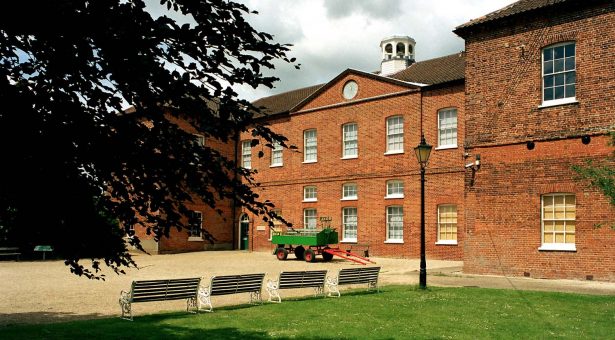Sam embarks on historical research at Gressenhall Farm and Workhouse

Sam embarks on historical research at Gressenhall Farm and Workhouse
Samuel Ellis decided to undertake his PIPS placement at Gressenhall Farm and Workhouse, a museum run by Norfolk County Council. Sam, a student at the Institute of Food Research, spent 12 weeks at Gressenhall from May to August 2016 and worked on a project entitled “Medical History in the Workhouse”. Sam wanted to experience the work that goes into curating a historical collection, and how that fits into wider management of a museums service. He also wanted to explore the differences between historical research, both physical and archival, and scientific research as well as utilising the opportunity of working at a public museum to gain transferable skills in team work and public engagement.
During Sam’s internship he was tasked with auditing an identified subset of the museum’s small object collection, consisting of hundreds of items relating to medical history. This involved updating the individual record for every object on a service-wide program called MODES, with information such as detailed descriptions, measurements, historical providence and digital photographs. A further task was selecting subsets of this collection which were suitable for future exhibiting. He was also researching medical care over the period that the site was a Poor Law Workhouse, using sources such as surviving minutes from Guardian board meetings. This then led to extensive genealogy research of medical officers and notable patients and cases at the institution.
Sam had extensive opportunities for gaining skills and experience in public engagement and teaching skills through the museum’s interactions with students and the public. Sam took part in shadowing and assisting staff from other teams at the museum, such as the learning department who run school visit programs and education initiatives.
As a result of Sam’s internship he says he feels more confident in approaching new challenges and styles of research. “I was given responsibility for self-managing my time and project focus, to get the most out of my placement period. I feel this will benefit my independent working in the future”, reflects Sam. Sam also developed his communication skills as he wrote an extended blog written for future inclusion on Gressenhall website as well as producing a historical research article for submission to a national journal. The organisation has a strong team-working focus, and Sam was also given the opportunity to train others during the project.
Sam found it surprisingly easy to stop worrying about putting his PhD research on hold once he started the internship and had something new to work on. However, Sam does have this advice for future students “I think it is very helpful before you leave to prepare a detailed summary of where you were up to with your research, similar to a progress report, to facilitate a smooth transition when you return”.
